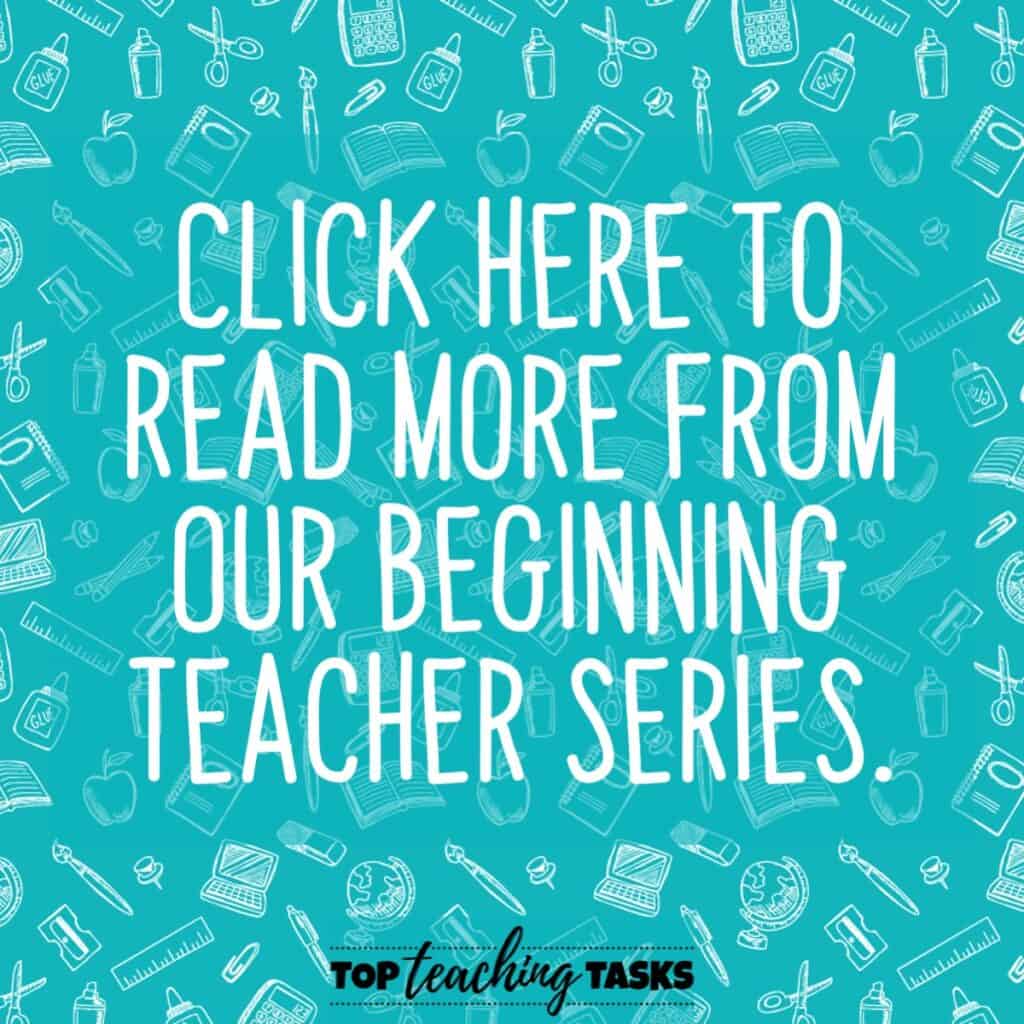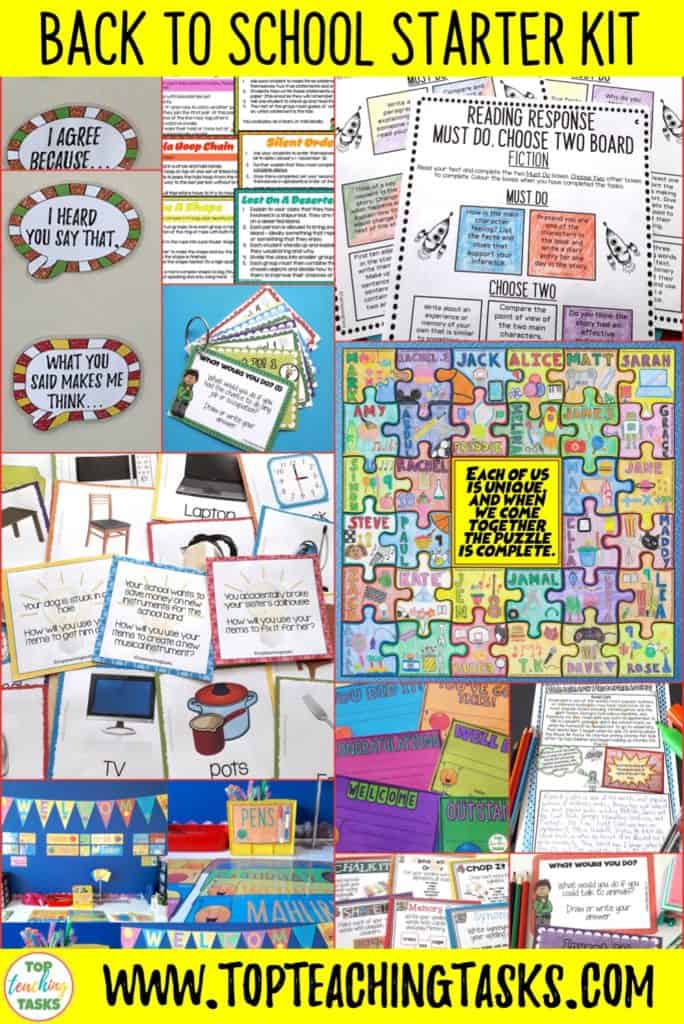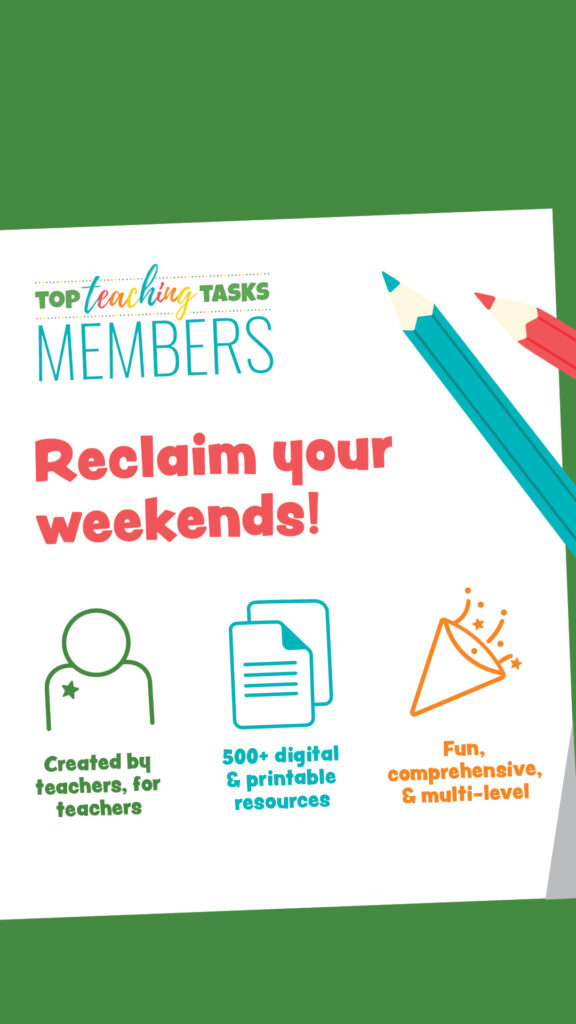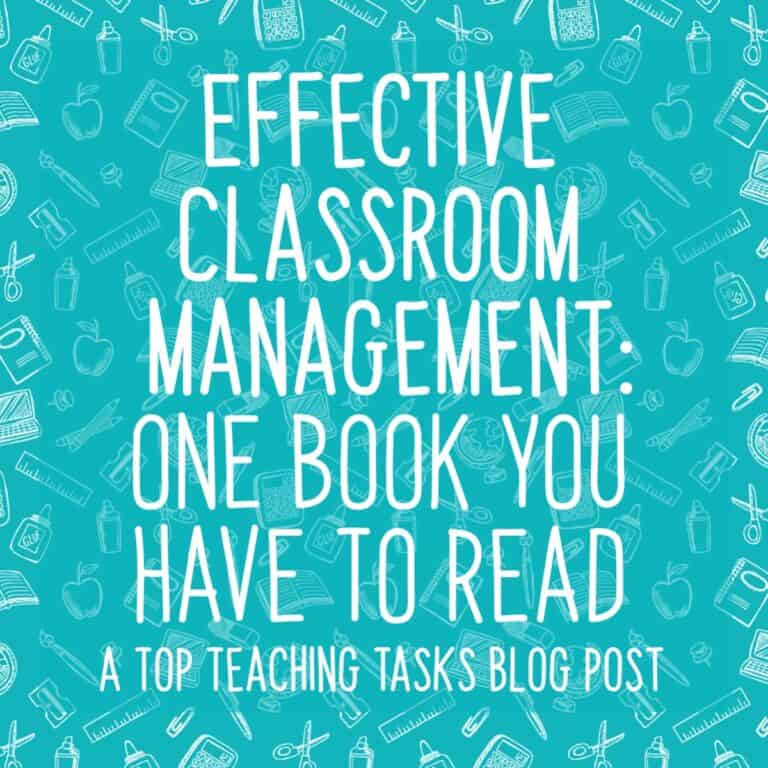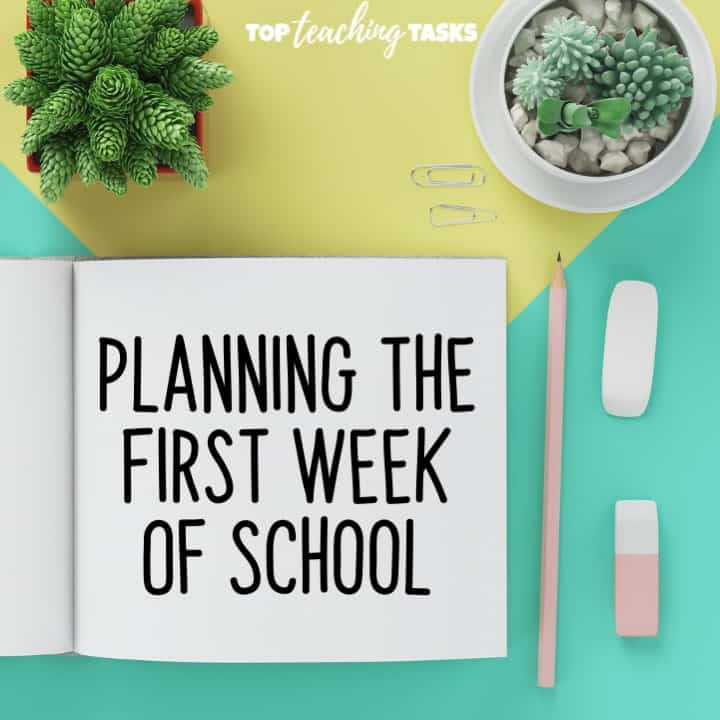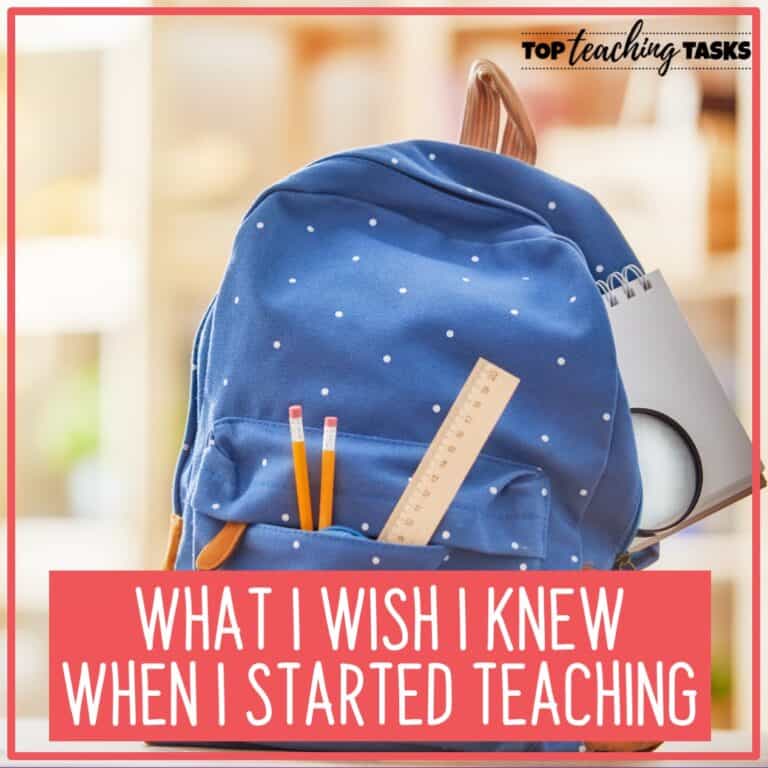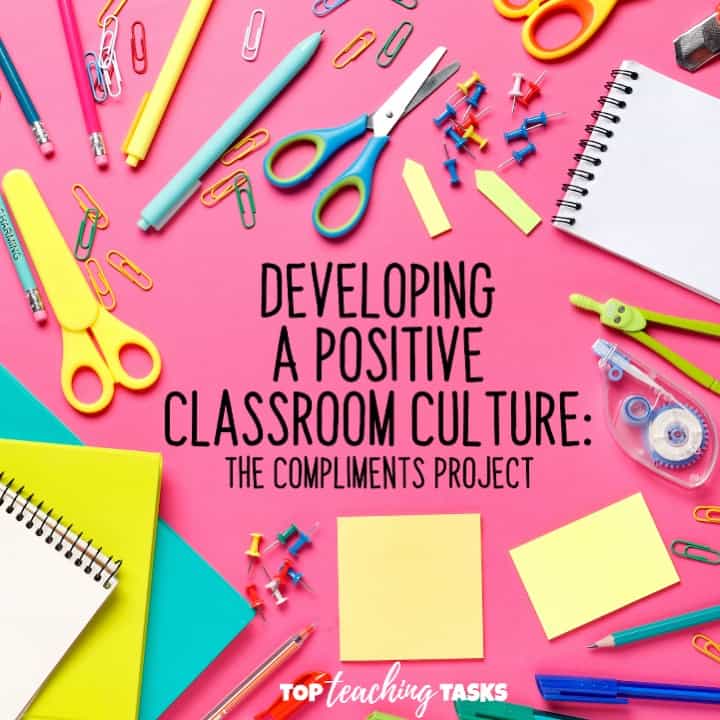Beginning Teachers: Working With a Mentor Teacher
I previously published a guest blog post by Sarah Tohill that examined the mentoring relationship of mentors and beginning teachers. Now, my fantastic group of beginning teachers will share their experiences of working with a mentor teacher. Some PCT (beginning teacher)/Mentor relationships are really positive, some could be called “interesting”, and unfortunately, some just don’t work.
My key takeaway from reading these responses: If you are not feeling supported by your mentor, do not struggle alone for two years. Ask for help, either directly from your mentor or from your management team. Your mentoring period is vital so get some support behind you.

Beginning Teachers Experiences of Working With a Mentor Teacher
The Good!
- The relationship I have with my mentor teacher is a very open, well respected reciprocal relationship. We can debrief after school if there’s been a bad day or I can text her if I need help in my classroom environment. As she is an experienced teacher at my school she knows the requirements for documentation and evaluation. This makes it easy to see her for a “simplified version” as she knows the ins and outs. We meet regularly once a week in my Friday release time for a debrief. Together, we have developed a timetable of what I can do within my release time to make sure I’m always on top of my work. She develops opportunities for myself to observe other classrooms, routines, and environments to allow me to continue to reflect on my own classroom environment. This ensures the students are getting exactly what they need.
My takeaway – Any mentors reading this – see above, and do this!
2. I have been blessed with a very thoughtful mentor for my first year, who also happens to be my team leader. This makes things easier for me in terms of who to report to.
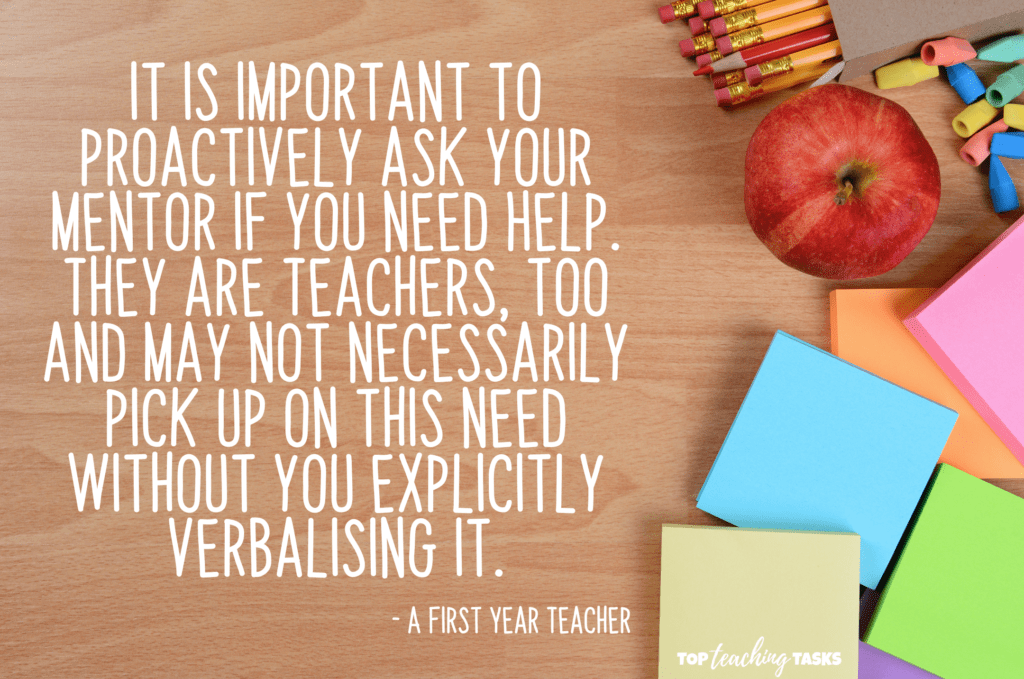
3. I did not have a regularly scheduled meeting with my mentor for covering PCT content until recently, but I would have if I asked. I would recommend that PCT’s try to organise this earlier than I did.
My takeaway – The quote above says it all. If you have needs as a beginning teacher, make sure you ask. When I was a BT, I appeared fine on the outside but I was struggling on the inside. When I finally reached out for help, everything improved. Your mentor teacher is busy and is also not a mind reader. It is a lot easier for them to help you if they know where you are really at.
4. I am very lucky to have a great relationship with my mentor. She has been so helpful throughout the whole process and is so understanding of all the challenges I have faced during this time. She has gone out of her way to make sure that my experience is not only a powerful learning time but not too overwhelming for me either. My mentor is a firm believer in working smarter, not harder, which has been so enlightening to me. She has taught me ways to make my life much easier, giving me tips that only a teacher who has a lot of experience would have. She is always encouraging and gives me feedback on a daily basis.
My takeaway – Love the focus on working smarter, not harder!
5. With each mentor teacher, they have really worked hard to ensure our relationship was honest, open, and flexible. If I was struggling I felt I could open up about my challenges and get support. I think this has been one of the major factors in being able to continue my BT journey through the maze it has been.
My takeaway – It takes time to develop a relationship of trust and openness between a mentor teacher and beginning teacher. The time and effort this takes are worth it.
The not-so-good
6. During my first year of teaching, it was a year of self-managing. I didn’t have any meetings where I could share how I was going and for my mentor to see if I needed help. The observation process was unclear, and I wasn’t able to ask for what I would like to be observed teaching. School reports and portfolios were, again, not supported. I only found out the requirements for these from my close colleague who has supported me through this whole time.
My takeaway – Remember that your other colleagues can be a great source of support and encouragement during your beginning teacher years.
7. Unfortunately for me, my relationship with my mentor (and his higher-ups) was really rocky. This eventually affected my mental health and I was on the brink of giving up the profession. But please don’t fear… this isn’t the norm from what I’ve heard. Communication is key. It is SO important that your needs and feelings are communicated clearly. I learned that sometimes, to survive and get through your year, you need to put your head down and follow their directions. If you’re lucky, they genuinely mean well, if not… bite your tongue and get onto it. I highly suggest finding someone on the staff team you genuinely trust, which could be your mentor teacher if you’re lucky! But it is almost impossible to get through the year without some good support – so make sure you seek it out.
My takeaway – What is coming up time and again is the importance of communicating how you are feeling throughout the year. You may have a mentor who actively asks, and you may need to initiate the conversation. Either way, ensure you do get to your honest feelings.
A mid-journey switch
8. I have had two mentors. My first mentor had little experience mentoring, I felt like I asked for help more than I received it. I was drowning in my first year. To be honest, I think there was a big personality clash between my mentor and I. We got along fine, but we had different expectations as to what the mentoring relationship would involve. Our styles of teaching were markedly different, and this showed in my teaching, my planning, and my portfolio. My mentor would tell me what to do and then left it up to me to implement it. If it didn’t work, I must have done something wrong. He requested to not be my mentor for my second year.
In my second year, my new mentor sat me down and we came up with expectations together. I have a lot more guidance, more regular meetings, and more observations. We bounce ideas off each other, co-plan and question each other. I am constantly asking questions, being guided to find the answer myself, and reflecting on my practice. My kids are making such great progress socially, behaviorally, and academically.
I feel so much more prepared to not have a mentor and to have less release time next year after having my new mentor.
My main advice: don’t be afraid to tell your principal that your relationship isn’t working. I was afraid to, but my first mentor did it for us. The impact on my teaching has been invaluable.
I hope you found hearing first-hand experiences of the mentoring relationship useful. As you can see, not all BT/Mentor relationships are created equal. The quote above says it all. If your mentoring relationship is not working, ask for help!
See more from our beginning teacher series
Back to School Starter Kit
Our Back to School Starter Kit contains everything you need to get your classroom set up and ready for day one. This resource includes classroom decor and display materials, literacy and social studies activities, early finishers and team building activities, and more!
Print, photocopy and laminate these resources and then put your feet up knowing you are ready for day one! You’ll also save with our generous discount (25% off!). See more here.

